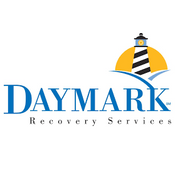5 Helpful Intervention Strategies for Drug Addiction & Alcoholism

If you know someone who is suffering from drug addiction or alcoholism, you likely want to do everything you can to help. However, expressing your concern to a friend or family member can be difficult. Before you hold an intervention, discover substance abuse professionals’ most accepted and helpful strategies.
5 Options for Drug Addiction & Alcoholism Mediation
1. Love-First Approach
Many recovery experts believe a nurturing and supportive environment will encourage the patient to receive treatment. The “Love First” approach emphasizes a positive and compassionate response. During this type of intervention, each family member reads a letter reminding the person how much they care for them, along with their chosen consequences should the recipient opt out of treatment.
2. Tough-Love Approach
The tough-love intervention is held by family members and includes consequences if the user does not seek treatment. Many substance abuse specialists see this type of intervention as a last resort, as it can complicate relationships and recovery efforts. However, withholding money or refusing to provide a free place to live may encourage a person dealing with addiction to receive professional care.
3. Confrontational Model
 The confrontational model is one of the clearest, most direct, and abrasive methods of drug addiction and alcoholism intervention. This approach typically involves a closed-door meeting between the addicted loved one, their family, and a professional interventionist. While the event is not entirely negative, it does clearly outline the ramifications the person will experience if they do not get help. In many cases, consequences include a potential severing of the relationship between the family and the user.
The confrontational model is one of the clearest, most direct, and abrasive methods of drug addiction and alcoholism intervention. This approach typically involves a closed-door meeting between the addicted loved one, their family, and a professional interventionist. While the event is not entirely negative, it does clearly outline the ramifications the person will experience if they do not get help. In many cases, consequences include a potential severing of the relationship between the family and the user.
4. Johnson Model
The Johnson model was born from the confrontational method. This adjusted strategy seeks to handle confrontation by educating families on how to intervene through casual conversations. Before the intervention, participants attend several appointments that teach them how to reduce disputes while encouraging their loved ones to get treatments.
5. Systemic-Family Model
The systemic-family model draws from elements of various approaches to create an effective intervention experience for families. Unlike more confrontational methods, the systemic-family interventionist invites the drug or alcohol user to the meeting. The lines of communication are positive, honest, and open. This approach puts the responsibility on all family members and may include a long-term commitment.
There are many ways to communicate to your loved one. When they are ready to receive help, Daymark Recovery Services in North Carolina will provide them with compassionate and skilled mental health and substance abuse treatments. To learn more about their services for alcoholism and addiction, visit their website today.
About the Business
Have a question? Ask the experts!
Send your question

